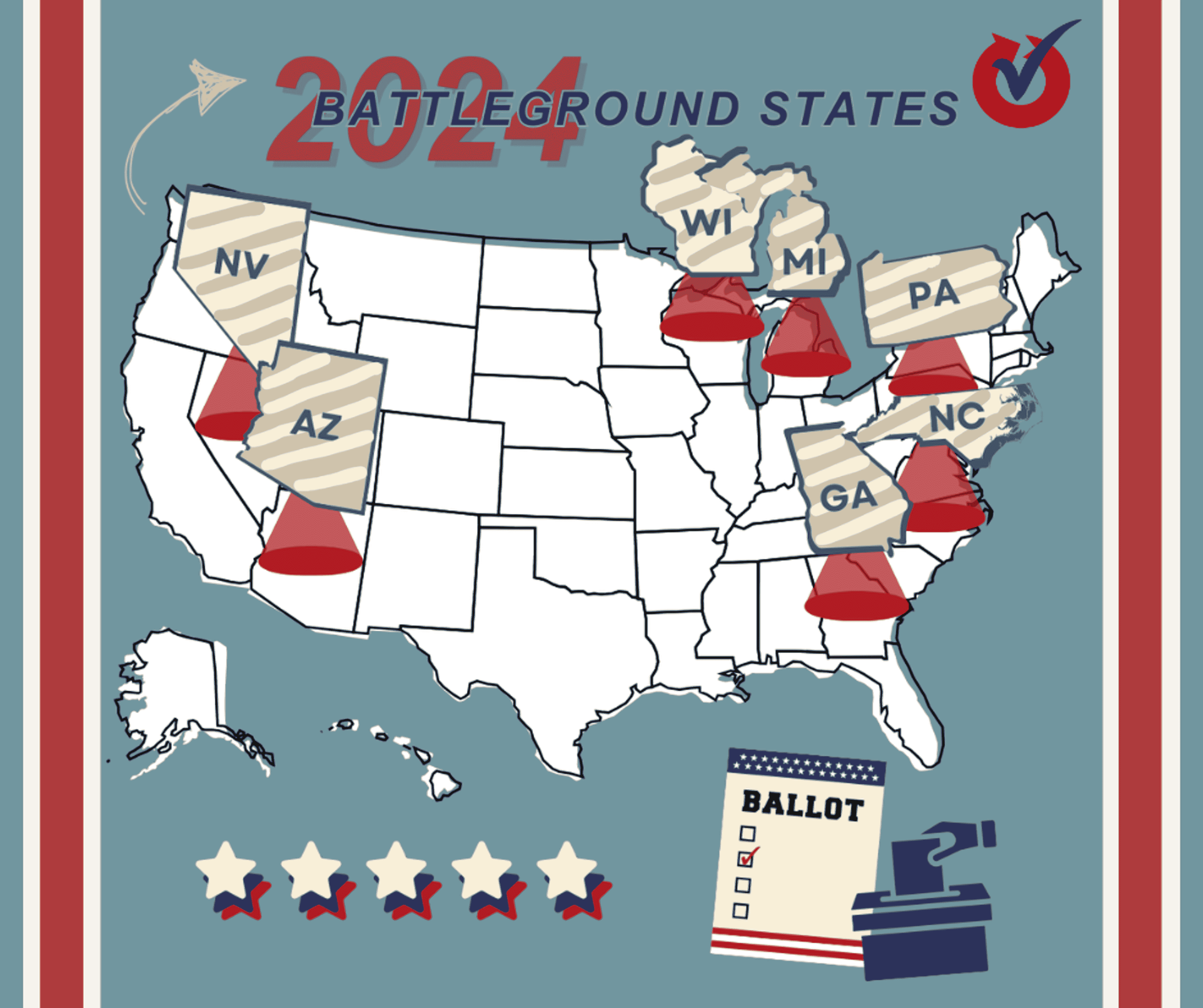Does Missouri matter?
Missouri's political significance has waned since its battleground status in 2008. Once a battleground, the state now leans Republican, shifting national campaign focus elsewhere. Can it regain influence?
In 2008, Missouri was a key battleground state in the presidential election.
John McCain and Barack Obama spent nearly $20 million on advertising in the state and visited a combined 27 times. In the end, less than 4,000 votes separated them, making Missouri the closest race in the country.
Fast forward to 2024, and Missouri seems to have lost its spotlight. Neither Vice President Harris nor former President Donald Trump have any events scheduled in Missouri this election cycle.
So, does Missouri still matter in presidential elections?
Not nearly as much as it used to, according to SEMO political science professor Jeremy Walling.
“Missouri used to matter more,” Walling said. “Missouri, at one time, pretty much always voted for whoever won the presidency.”
Between 1904 and 2004, Missouri voted for the winning candidate in every election except one. But since 2009, the state has shifted solidly Republican, and with that shift, its influence in national politics has waned.
The Shift to Red
Walling attributes this change to several factors, including changing demographics, the Electoral College, and the Democratic Party’s neglect of rural areas.
“Our blue is really kind of concentrated in St. Louis and Kansas City, and so if the population declines in those places, we expect to see a little less blue,” Walling said. “And we know the population in St. Louis city is declining.”
Although the population has continued to grow, it’s at a slower rate than the rest of the country, which means fewer electoral votes.
Missouri now has just 10 votes, compared to the 18 it had in 1928. The last time Missouri had fewer than 11 electoral votes was in 1860, when enslaved black Americans only accounted for three-fifths of a person.
With fewer available votes and a predictable Republican win, national attention has moved to other states.
Republicans and Democrats alike see little reason to invest in the state if the outcome is predetermined before the first votes are cast.
“It’s strategic. All these campaigns have limited resources, so if a candidate knows that a state is in play, they’re going to spend a lot of money, and if they think a state isn’t in play, then they won’t,” Walling said.
Could Missouri become competitive again?
Walling believes Missouri could become competitive again, but it would take significant investment from Democrats to break into Republican strongholds.
“It’s not impenetrable, but it’s going to be challenging for these seats to be winnable for the democrats,” Walling said. “For the time being, this is who we are… What we value politically and ideologically.”
According to Chloe Ray, director of rural outreach for Missouri politician Elad Gross, Democrats have overlooked rural areas for years.
[Rural voters] haven’t been visited or talked to by democratic candidates in a while,” Ray said. “Democrats want to focus on liberal areas like St. Louis, Kansas City, and Springfield because that’s where they think they’ll get the most votes.”
Ray said this neglect of rural areas has led many state elections to be run unopposed, with no democrats even on the ballot.
Ray hopes to change that. She hopes increased competition will engage voters statewide, regardless of their political affiliation.
Voter engagement
Junior political science major Andrew Murphy feels that Missouri’s Republican dominance has caused many voters to feel like their vote doesn’t matter.
“Missouri seems like it’s going to go red every election, so it doesn’t feel like it really matters,” Murphy said. “Voting matters no matter where you are... Vote for what you believe in.”
Junior political science major Christopher Lewis said that young voters, especially college students, often feel discouraged in states where one party dominates.
However, he stressed that their participation is critical, even in predictable states like Missouri.
“Historically, young voters have always been an important demographic because we’re up-and-coming. We’re filling the spots of the older generation as they move on,” Lewis said.
"Voting is important no matter who is projected to win the White House," Walling said.
“Even if the presidential race in Missouri is a foregone conclusion, we still have the senate races, the statewide races, and the local races,” Walling said. “Your local government has more day to day impact on your life than the president does.”
Looking ahead to Election Day
Election Day is Tuesday, Nov. 5, 2024.
While Missouri may not be the deciding factor in the 2024 Presidential election, voting in the state still matters.







